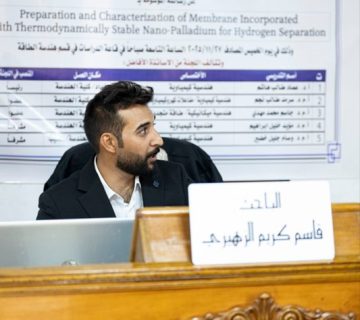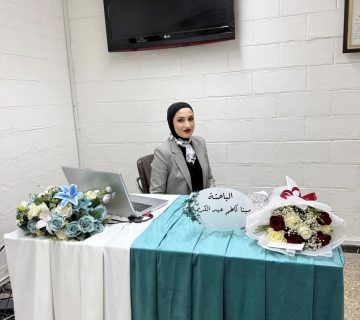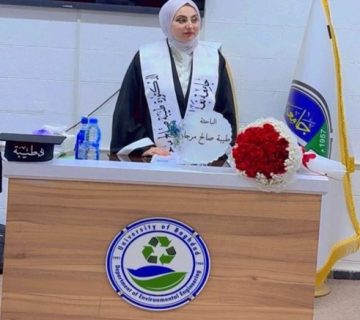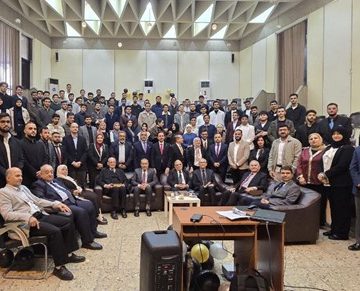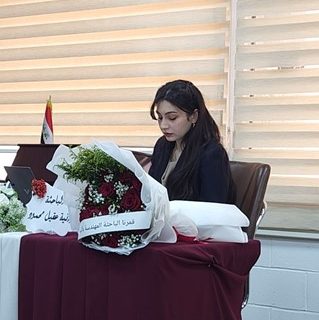The College of Engineering at the University of Baghdad hosted the public discussion of Nour Diaa Rajab’s master’s thesis from the Department of Civil Engineering, titled:
“Evaluation of Sustainable Requirements in the Iraqi School Building.”
The defense took place on Monday, February 24, 2025, in Dr. Khaled Shaker Hall, under the supervision of Prof. Dr. Hatem Khaleefah Breesam.
Research Overview
Achieving sustainability in school buildings has profound environmental, economic, and social benefits. Iraq’s educational infrastructure faces several challenges, including:
- Rapid urbanization and rising energy demands.
- Aging school buildings lacking sustainable design.
- High energy consumption and inefficient resource use.
The research highlights how sustainable practices in the education sector can reduce operating costs, improve student well-being, conserve resources, enhance air quality, and manage waste efficiently. Additionally, sustainable schools play a crucial role in raising environmental awareness among students.
Research Methodology
The study aimed to develop a comprehensive framework for assessing and promoting sustainable school buildings in Iraq. The methodology included:
- Reviewing relevant literature to identify key sustainability criteria.
- Collecting expert opinions through interviews and questionnaires to validate these criteria.
- Applying the Analytical Hierarchy Process (AHP) to determine the relative importance of sustainability factors in school design.
Key Recommendations
Based on the findings, the study proposed several recommendations for integrating sustainability into Iraq’s school construction projects:
- Raising awareness among engineering bodies within the Ministry of Education through workshops on sustainable school design.
- Enforcing legislation to mandate the integration of sustainability criteria in all educational building projects.
- Implementing a dynamic evaluation program that allows authorities to update sustainability indicators and grant certifications for school projects.
- Incorporating green spaces and water-efficient irrigation systems in school architecture.
- Enhancing indoor environmental quality standards to promote student health and a better learning environment.
- Integrating water-saving technologies, such as automatic shut-off faucets, low-flow toilets, and greywater reuse systems, into school designs.
- Ensuring accessibility for students with special needs by incorporating ramps, elevators, wide corridors, and appropriate sanitary facilities.
- Selecting optimal school locations with sufficient space for playgrounds and green areas, while designing buildings to maximize natural ventilation, sunlight exposure, and thermal efficiency.
Thesis Outcome
After the scientific discussion and evaluation by the esteemed defense committee, Nour Diaa Rajab was awarded a Master’s degree in Civil Engineering / Project Management.




